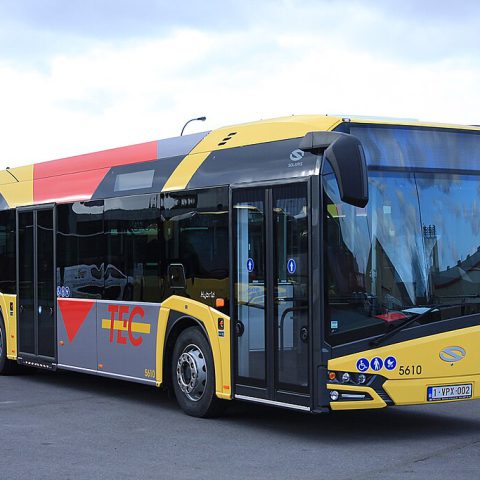Belgium, Wallonian operator TEC to deploy 32 e-buses in a converted depot in Liège
The Walloon government has approved the Mobi’Park project to build a new bus depot at Tilleur (Saint-Nicolas), in the province of Liège. It will be the first electrified depot in Wallonia (one of the three regions of Belgium), said Philippe Henry, Walloon Minister for Mobility, according to local media, thanks to an investment of €105 […]

The Walloon government has approved the Mobi’Park project to build a new bus depot at Tilleur (Saint-Nicolas), in the province of Liège. It will be the first electrified depot in Wallonia (one of the three regions of Belgium), said Philippe Henry, Walloon Minister for Mobility, according to local media, thanks to an investment of €105 million coming from the Belgian recovery plan.
Money that will be used also for the purchase of 32 electric buses (14 articulated and 18 bi-articulated) and the installation of 34 charging spots (two of those will be fast ones).
Source picture: Jean Philippe Dheure, CC BY-SA 4.0, https://commons.wikimedia.org/w/index.php?curid=81087569
Belgium on the way to energy transition
282 zero emission buses were in operation as of end 2023 in Belgium, 40% coming from MAN’s factories (follower: Van Hool with 54 units running). And 292 were set to be introduced in 2024 and 2025 based on contract already signed: the main part of these will be covered by Iveco Bus (contract with De Lijn was signed in early 2023) and Daimler Buses (109 E-Way and 92 eCitaro – 70 of those awarded in April 2023 by STIB). The information had been reported on an extensive article on the Belgian-Dutch Magazine Personenvervoer.
Belgium is on a mission to achieve a sustainable and emission-free public transport system by 2035. While the Netherlands is making substantial progress, with 35% emission-free buses already in operation, Belgium’s public transport companies, STIB (Brussels), De Lijn (Flanders), and Le TEC (Wallonia), still have work to do to catch up, the article states
Now it’s time for TEC to make a few steps towards decarbonization of public transport fleet with the new project. “Mobi’Park will replace the Jemeppe-sur-Meuse depot, which has become inadequate and dilapidated. It will be the first electrified depot in Wallonia and the second largest TEC depot“, Minister Henry pointed out.







